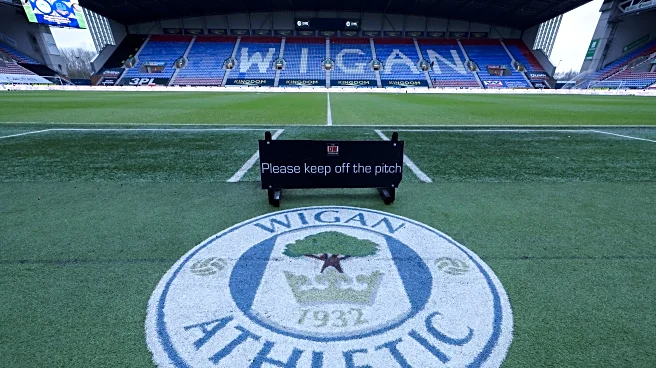Rapid Read • 7 min read
The U.S. consumer prices saw a moderate increase in July, with the Consumer Price Index (CPI) rising by 0.2% from the previous month, according to the Labor Department. This increase was driven by higher costs for services such as airline fares and healthcare, as well as tariff-sensitive goods like household furniture. The core CPI, which excludes food and energy, rose by 0.3%, marking the largest gain since January. Concerns have been raised about the quality of inflation data due to budget cuts and staffing reductions at the Bureau of Labor Statistics (BLS), which have led to the suspension of data collection in certain areas. President Trump has nominated E.J. Antoni to head the BLS, following the firing of Erika McEntarfer.
AD
The moderate increase in consumer prices and the rise in core CPI indicate underlying inflation pressures, which could influence the Federal Reserve's decision on interest rates. The impact of President Trump's tariffs is expected to further affect inflation, as businesses continue to sell pre-tariff merchandise. The suspension of data collection raises concerns about the accuracy of inflation reports, potentially affecting economic policy decisions. The nomination of E.J. Antoni, a critic of the BLS, could signal further changes in how economic data is managed and reported.
The Federal Reserve is expected to consider these inflation figures in its upcoming meeting, with potential interest rate cuts on the horizon. The ongoing tariff impacts and changes in BLS leadership may lead to shifts in economic policy and data reporting practices. Stakeholders, including investors and policymakers, will closely monitor these developments to assess their implications for the U.S. economy.
AD
More Stories You Might Enjoy











